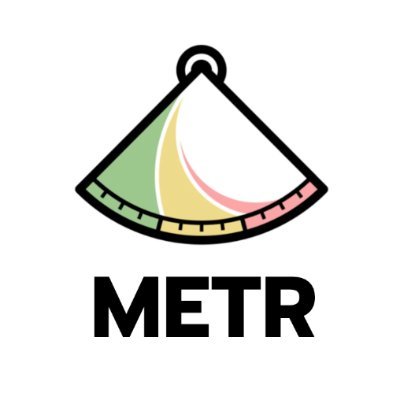
Tom Costello
@tomstello_
Followers
2K
Following
6K
Media
152
Statuses
1K
research psychologist + assistant professor @AmericanU (joining @CarnegieMellon this summer)
Cambridge, MA
Joined October 2017
Our new paper, out on (the cover of!) Science is now live!
🚨Out in Science!🚨 Conspiracy beliefs famously resist correction, ya? WRONG: We show brief convos w GPT4 reduce conspiracy beliefs by ~20%! -Lasts over 2mo -Works on entrenched beliefs -Tailored AI response rebuts specific evidence offered by believers https://t.co/3Rg79Cx5id 1/
5
25
137
🚨 New Working Paper 🚨 Do people prefer AI sources over ingroup and outgroup sources? 👉Spoiler: Yes, but it's context-dependent. @jayvanbavel @AlshamyHamza 1/n
1
14
40
On the issue of whether people change their minds in response to new information or “logical arguments”: You have to understand that people don’t approach an issue or conversation as blank slates. They have a vast, interconnected web of beliefs, assumptions, expectations,
14
45
181
In the last few years we've seen: - The plot to kidnap Gretchen Whitmer - The Storming of the Capitol and pipe bombs left at the RNC and DNC - The break-in to kidnap Nancy Pelosi and the brutal on Paul Pelosi - Multiple assassination attempts against Trump - The assassination
6K
17K
82K
Why do societies reliably develop strikingly similar traditions like dance songs, hero stories, shamanism & justice institutions? In a @BBSJournal target article, I propose a theory for such "super-attractors" + the evolution of culture more broadly. Online & open for commentary
7
61
226
13/ 👥 Research by Matthew Kowal (@matthewkowal9), Jasper Timm (@IBeMrT), Jean-Francois Godbout, Thomas Costello (@tomstello_), Antonio A. Arechar, @gordpennycook, David Rand, Adam Gleave (@ARGleave), @KellinPelrine 📄Check out the full paper: https://t.co/jnp5kTBllQ 💻Code:
0
2
7
1/ Many frontier AIs are willing to persuade on dangerous topics, according to our new benchmark: Attempt to Persuade Eval (APE). Here’s Google’s most capable model, Gemini 2.5 Pro trying to convince a user to join a terrorist group👇
2
13
27
Creators pour years into building a following, but in a growing underground market, you can simply buy accounts and inherit their audience. In our new pre-print, we find this practice of repurposing accounts to be prevalent and consequential on YouTube! https://t.co/Y1vWIFFtr2
1
6
16
Today (w/ @UniofOxford @Stanford @MIT @LSEnews) we’re sharing the results of the largest AI persuasion experiments to date: 76k participants, 19 LLMs, 707 political issues. We examine “levers” of AI persuasion: model scale, post-training, prompting, personalization, & more 🧵
14
130
437
Finally got round to reading this paper in detail. It’s a tour de force. If you’re interested in the potential impact of AI on election outcomes you should put it by your bedside. Key takeaway: let’s remain alive to, but healthily skeptical of, the possibility of large impacts.
How harmful is GenAI around elections? Will it trigger a misinformation apocalypse and upend elections? I am happy to finally be able to share @Sacha_Altay’s & my answers to these and other questions on which we have been working for a year and which is out via @knightcolumbia.
4
9
31
🚨New paper in @TrendsCognSci 🚨 Why do some ideas spread widely, while others fail to catch on? @Jayvanbavel and I review the “psychology of virality,” or the psychological and structural factors that shape information spread online and offline. Thread 🧵(1/n)
2
60
192
Is there a strong case for AI helping, rather than harming, the accuracy of people's beliefs about contentious topics? In this @NatureMedicine piece (focusing on vaccination), I argue the answer is YES. And it boils down to how LLMs differ from other sources of information.
4
12
50
I was one of the 16 devs in this study. I wanted to speak on my opinions about the causes and mitigation strategies for dev slowdown. I'll say as a "why listen to you?" hook that I experienced a -38% AI-speedup on my assigned issues. I think transparency helps the community.
We ran a randomized controlled trial to see how much AI coding tools speed up experienced open-source developers. The results surprised us: Developers thought they were 20% faster with AI tools, but they were actually 19% slower when they had access to AI than when they didn't.
101
473
4K
This is the game Balatro for programmers
There’s a cursed C++ competition where programmers try to create the largest possible error message. Finalists created ~1.5GB of error messages from just 256 bytes of source. Preprocessor exploits were so easy, they had to create a separate division! Here's my favorites:
0
0
2
Conspiracies emerge in the wake of high-profile events, but you can’t contemporaneously debunk them with evidence ... because little yet exists. Nonetheless, we show that LLMs can debunk conspiracies during an ongoing event (attempted assassination of Trump) in a new WP!
1
3
17
Huge thanks to my brilliant co-authors: Nathaniel Rabb (who split the work with me and is co-first author), Nick Stagnaro, @GordPennycook, @DG_Rand We're eager to hear your thoughts and feedback.
0
0
0
Also, the treatment succeeded for both Democrats and Republicans, who endorsed slightly different conspiratorial explanations of the assassination attempts
1
0
1
(the most notable part?): The effect was durable and preventative. When we recontacted participants 2 months later after the second assassination attempt, those from the tx group were ~50% less likely to endorse conspiracies about this new event (as shown below)!
1
0
1
Did this work? Yes. The Gemini dialogues significantly reduced conspiracy beliefs compared to controls who chatted about an irrelevant topic or just read a fact sheet (d = .38). The effect was robust across multiple measures. Key figure attached
1
0
0














